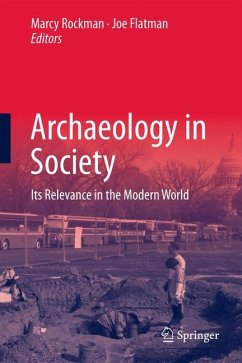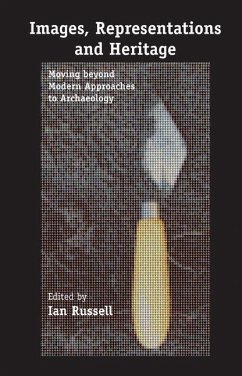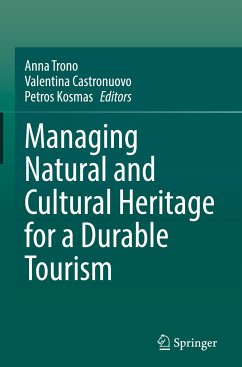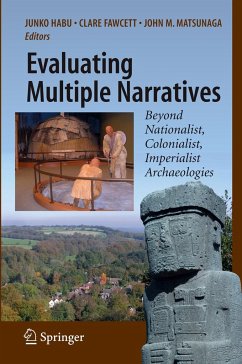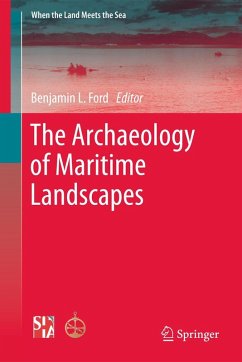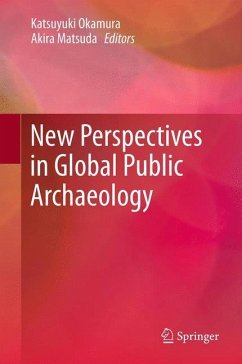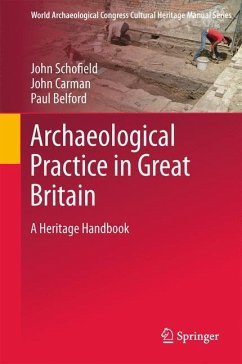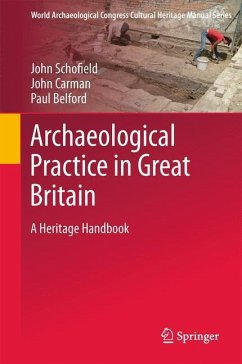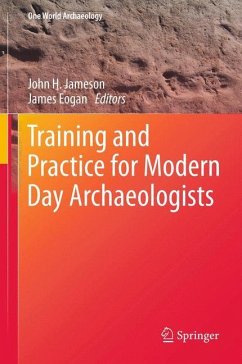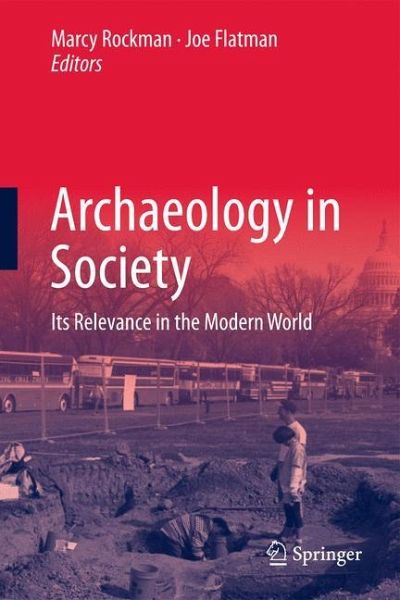
Archaeology in Society
Its Relevance in the Modern World
Herausgegeben: Rockman, Marcy; Flatman, Joe

PAYBACK Punkte
19 °P sammeln!
The practiceof archaeology has many different facets: from academia, to government, tocultural resource management, to public media.
Considering the place of archaeology in society means understanding the rolesthat archaeology has in the present day and a sense of the contributions thatit can make in each of these areas, both now and in the future. Archaeologistscome to the field to pursue a variety of interests: teaching, examininghistory, preserving the environment, or studying a specialized time period orinterest. The outside world has a number of other expectations of archaeology:preservation, tourism, and education, to name but a few.
From a broad and varied background, the editors have compiled a rare group ofcontributors uniquely qualified to address questions about the current state ofarchaeology and its relevance in society. There is no single answer to thequestion of how the field of archaeology should develop, and what it can do forsociety. Instead,the authors in this volume lay out the many ways in which archaeology isrelevant to the present day - considering, for example, climate change, energyexploration, warfare, national identity, the importance of stories and how theyare told, and how and why opportunities to engage with the past throughmuseums, digs, television, classes, and the print media have the formsthey currently do - creating a state-of-the-art tool for archaeologists, policymakers and the public alike to understand the work of many in the fieldand address the challenges we all face.
Considering the place of archaeology in society means understanding the rolesthat archaeology has in the present day and a sense of the contributions thatit can make in each of these areas, both now and in the future. Archaeologistscome to the field to pursue a variety of interests: teaching, examininghistory, preserving the environment, or studying a specialized time period orinterest. The outside world has a number of other expectations of archaeology:preservation, tourism, and education, to name but a few.
From a broad and varied background, the editors have compiled a rare group ofcontributors uniquely qualified to address questions about the current state ofarchaeology and its relevance in society. There is no single answer to thequestion of how the field of archaeology should develop, and what it can do forsociety. Instead,the authors in this volume lay out the many ways in which archaeology isrelevant to the present day - considering, for example, climate change, energyexploration, warfare, national identity, the importance of stories and how theyare told, and how and why opportunities to engage with the past throughmuseums, digs, television, classes, and the print media have the formsthey currently do - creating a state-of-the-art tool for archaeologists, policymakers and the public alike to understand the work of many in the fieldand address the challenges we all face.





